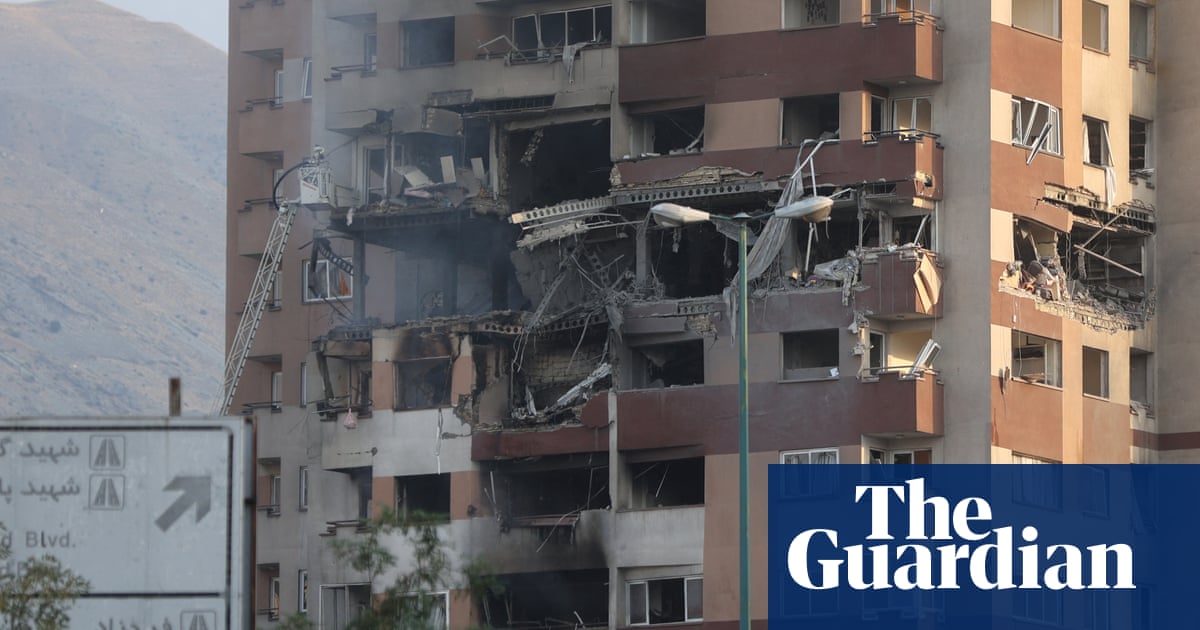Israel haslaunched an attack on Iranaimed at “dozens” of targets, including its nuclear facilities.
Israel’s prime minister,Benjamin Netanyahu, said the attack, dubbed Rising Lion, would take “many days”and was aimed at “rolling back the Iranian threat to Israel’s very survival”.
Netanyahu said one target was the Natanz nuclear facility,a key site for uranium enrichment.
The Israeli defence minister, Israel Katz, announced a “special situation” in Israelafter the country launched the strikes and saidIsrael expected retaliation.
Tel Aviv’s Ben Gurion Airport was closed until further notice,and Israel’s air defence units stood at high alert.
Revolutionary Guards commander Hossein Salami has been killed in the strikes and the unit’s headquarters in Tehran had been hit.The Revolutionary Guards said Israel will pay a heavy price for its attack.
State TV is reporting that nuclear scientists Fereydoun Abbasi and Mohammad Mehdi Tehranchi were also killed.
Iran’s supreme leader Ayatollah Ali Khamenei saysIsraelwill receive a harsh punishment after its attack on Iran early on Friday.He confirmed that several commanders and scientists were killed in the attacks – and warned that Israel had “prepared a bitter fate for itself.”
Israel’s ambassador to the United Nationshas saidIsraelhas an ongoing dialogue with the United States butits determination to strike Iran was an independent Israeli decision.
Donald Trump will attend a national security council meeting on Friday morning,in the wake of the strikes.The meeting will be held at 11am (1500 GMT) on Friday, the White House said.
Secretary of state Marco Rubio said the US wasnot involved in the strikes.“Tonight, Israel took unilateral action against Iran. We are not involved in strikes against Iran and our top priority is protecting American forces in the region. Israel advised us that they believe this action was necessary for its self-defence.”
The UN nuclear watchdog confirmed Friday that Israeli strikes were targeting an Iranian uranium enrichment site, saying it was “closely monitoring the deeply concerning situation”.
Oil prices jumped more than 7% on Friday, hitting their highest in monthsafterIsraelsaid it struck Iran, dramatically escalating tensions in the Middle East and raising worries about disrupted oil supplies.
World leaders have voiced concern over the strikes.New Zealand’s prime minister, Christopher Luxon, said that the Israeli airstrikes on Iran was a “really unwelcome development”. Australia’s foreign minister, Penny Wong, said the government was “alarmed”.
